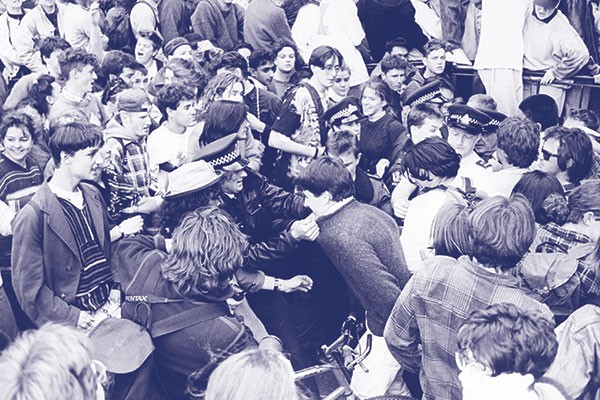On Wednesday last week, a small group of protesters gathered to oppose the presence of global finance company Goldman Sachs on campus because of their investment in the Dakota Access Pipeline (see page seven for more information). The group was no larger than fifteen at any given time, and at several points throughout the protest shrunk to fewer than five.
This is yet another example of how 18-30 year olds have become, on the whole, largely apathetic to politics and as a result are being ignored by the political establishment. In the last general election, for example, the seven electorates with the lowest enrollment rates were also those with the highest student populations (North Dunedin was the 6th lowest nationally). The 18-24 age range also had the second highest total enrollments (behind only the ever increasing 70+ bracket), but have the equal lowest voter turnout (as a percentage of total enrolled), with the second lowest being the 25-29 age range.
We’ve gone from being politically disillusioned to politically disinterested, and our voices aren’t being heard simply because we’re not making them be heard, either at election time or, when in between elections, in protest at decisions that affect us. Local and National Government are ignoring our needs in preference of other demographics because of this disinterest, and will continue to exploit this until we provide them with the need to listen to us.
Students of old would not have sat apathetically in the face of constantly increasing tuition fees, cuts to university departments, the growing influence multinational corporations wield in our political sphere, our own government’s spying programme against us, TPPA, etc. There are an enormous amount of issues that affect our interests, as students and as citizens or residents. When was the last time a large student group stood up as a collective and forced change?
That’s not to say there aren’t examples of students protesting, the Goldman Sachs protest is one example of this. Another came last year when the Students for Environmental Action (SEA) protested outside the University Clocktower and helped to force Otago University to commit to divesting from fossil fuels. Unfortunately, this course of action is a rarity.
Even student politics is barely political anymore. It’s now so far removed from political ideology that it’s simply become a contest of ‘popularity’ and ‘competency’ as opposed to a disagreement between the ideological left or right. The OUSA Executive constantly make decisions on your behalf, many of which reflect the underlying ideological leanings of its members as a whole, but they certainly don’t flaunt their political affiliations. If they can become elected without ideological affiliation, they can work on your behalf on the same basis. When you next see your student executive, ask them where they stand on the the political spectrum; their reply will inevitably be “we’re not actually affiliated to a political ideology.” Press them and then press them again.
Of the two arguably most famous protests at Otago University, the first came in the late ‘60s when students took to the streets to protest the university’s prohibition on mixed flatting. The second came a little more recently, in the early ‘90s, when students of the day rioted before famously occupying the clocktower in opposition to the university imposing fee increases. This put at bay the increases until 1994 when the freeze on tuition fees was nationally lifted, and ever since then universities across New Zealand have leapt at the opportunity to cash in, adding four percent to student tuition fees year on year. It’s not as though we have to sit back and think up novel ways of opposing these increases; our parents have already provided those for us.
Joe Higham
Critic Co-editor



